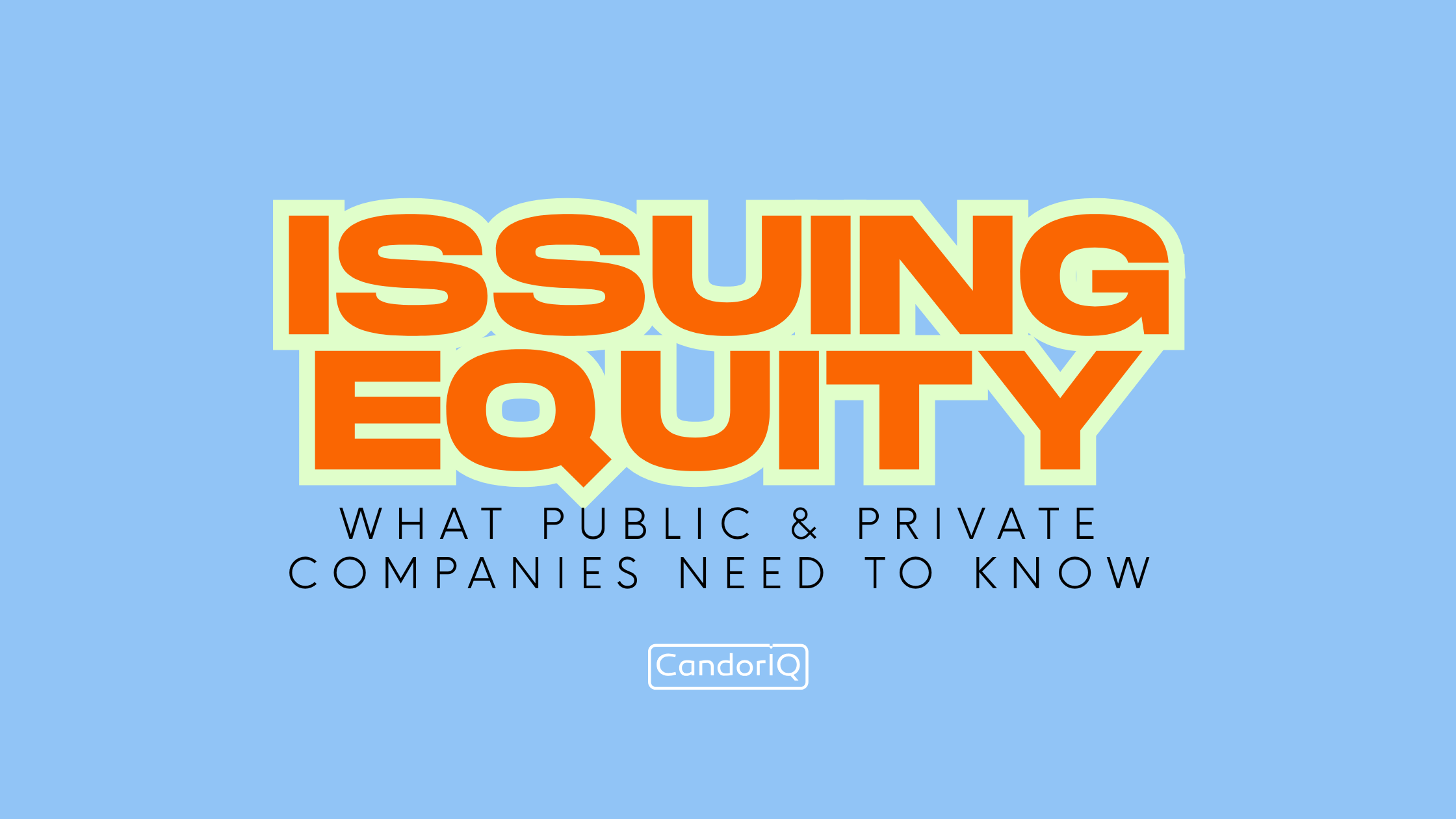Issuing Equity to Candidates: What Public and Private Companies Need to Know
Equity Is Powerful—If People Understand It. Here’s How to Get It Right

When it comes to compensation, they always say: cash is king. But equity?
Equity is how you build buy-in, alignment, and long-term incentive. It’s also one of the most misunderstood (and mismanaged) parts of a compensation package.
At CandorIQ, we work with companies on both sides of the spectrum—fast-growing startups and publicly traded companies—and we’ve seen firsthand how different the playbook is when it comes to offering equity to candidates.
So let’s break it down. What makes equity offers different for public vs. private companies? What kind of equity should you offer? And how do you make it all understandable for the person on the other end of the offer?
Equity at a Private Company: Predictable Price, Less Liquid
Private company equity is usually tied to stock options, which give the employee the right to buy shares at a fixed price (called the strike price), usually based on the most recent 409A valuation.
A few key things to keep in mind:
- The share price doesn’t change much—usually only when a new 409A valuation is done (typically annually or after a major financing event)
- The most common grant type is stock options, especially in earlier-stage startups
- There’s upside potential, but it requires employees to purchase shares—sometimes a tough ask for cash-constrained candidates
That’s part of the reason why offering equity at a private company requires more explanation. You’re often asking someone to take a bet on you—and spend their own money to do it.
Equity at a Public Company: Dynamic Price, More Tax
Public company equity is a different beast. Your share price changes constantly, and your equity offer needs to account for that volatility.
There are two common approaches to pricing equity in a public offer:
- Fixed-point pricing: Lock in the stock price on a specific date (e.g. the offer date) and revisit your bands annually or biannually
- Time-based average pricing: Use a rolling average (e.g. 30-day) to smooth out short-term fluctuations
Most public companies use RSUs (restricted stock units) rather than options. RSUs are simpler for the employee—you don’t have to buy them—but they’re taxed as income when they vest, which can create some surprises at tax time.
You may also see ESPPs (employee stock purchase plans) as a supplemental benefit—offering discounts on shares through payroll deduction.
Equity Is Great… Until It’s Confusing
Here’s the thing, equity is a great tool. But only if people understand it.
If your candidate can’t make sense of your offer—or worse, is scared off by the tax implications or purchase requirements—you’ve lost a powerful incentive.
According to Carta, 43% of startup employees don’t fully understand how their equity works. And a recent Justworks survey showed that equity confusion is one of the top three concerns employees have when joining a new company.
You can’t just drop a number in an offer letter and hope it clicks. You need tools to visualize, compare, and model what equity could actually mean—across best-case and worst-case scenarios.
How We Support Equity at CandorIQ
Whether you’re issuing RSUs, stock options, or trying to benchmark offers across private and public comp models, we’ve got you covered.
✅ We support both RSUs and stock options in our comp modeling tools
✅ We help you visualize and compare scenarios (helpful for both finance leaders and candidates)
✅ We enable smart defaults and transparency, so your equity offers are easy to understand—and hard to turn down
And we do it with the same goal in mind: giving people the clarity and confidence they need to say “yes” to your offer.
Clarity > Complexity
Cash may be king, but equity is what makes someone feel like an owner.
If you’re serious about attracting great talent—whether you’re a lean startup or a public powerhouse—you have to treat equity like the strategic lever it is. That means:
- Choosing the right instrument (options vs. RSUs vs. ESPP)
- Modeling and pricing it responsibly
- And most importantly, making it understandable and aligned for the person receiving it
Because the best equity offer in the world doesn’t matter if your candidate can’t make sense of it.


